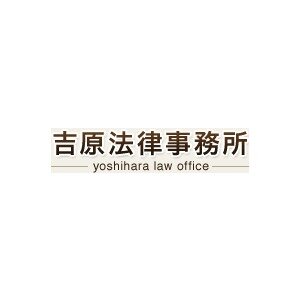Best Criminal Litigation Lawyers in Sapporo
Share your needs with us, get contacted by law firms.
Free. Takes 2 min.
List of the best lawyers in Sapporo, Japan
About Criminal Litigation Law in Sapporo, Japan
Criminal litigation in Sapporo, Japan, involves legal proceedings instigated due to an individual or entity being accused of criminal conduct, which breaches the laws of Japan. Sapporo, being a major city in the northern region of Hokkaido, shares characteristics with the national legal system but may have local judicial nuances due to regional regulations. The criminal justice process involves various stages including investigation, prosecution, defense, trial, and sentencing, which are managed under the jurisdiction of the local district court and guided by the principles of the Japanese Penal Code.
Why You May Need a Lawyer
There are several situations where you might need legal assistance in criminal litigation. If you've been charged with a crime, whether it be minor or major, having legal representation is crucial to ensure your rights are protected. Other scenarios include being under investigation, receiving a summons or indictment, or needing to appeal a verdict. Additionally, if you're a victim of crime seeking justice through criminal proceedings, a lawyer can navigate the complex legal landscape on your behalf.
Local Laws Overview
Key aspects of local laws relevant to criminal litigation in Sapporo include adherence to the Japanese Penal Code, which defines crimes, penalties, and procedures. Important elements involve the presumption of innocence, the role of the public prosecutor, and the right to a fair trial. Particular attention is given to the local enforcement of laws regarding drug offenses, property crimes, and public safety. Furthermore, the influence of cultural norms and societal values shapes Sapporo's approach to legal rulings and law enforcement practices.
Frequently Asked Questions
What should I do if I am arrested in Sapporo?
Remain calm and cooperative with law enforcement. It is important to invoke your right to remain silent and request to speak with a lawyer as soon as possible.
How does bail work in Sapporo?
Bail is not commonly granted in Japan. However, a lawyer can request bail on your behalf, and the court will decide based on factors like the severity of the crime and flight risk.
Can I represent myself in a criminal trial?
While it is legally permissible, it is not advisable due to the complexity of criminal law. A professional lawyer can provide crucial guidance and representation.
How long does a criminal trial typically last?
The duration varies depending on the complexity of the case but can range from several months to over a year. The court schedules multiple hearings to examine evidence and testimony.
What potential penalties could I face if convicted?
Penalties depend on the severity of the offense and can include fines, imprisonment, community service, or probation. Serious offenses may result in lengthy incarceration.
Can I appeal a conviction?
Yes, you have the right to appeal a conviction to a higher court if you believe there was an error in the trial's process or judgment.
What are my rights during police questioning?
You have the right to remain silent, refuse to sign any statements, and request the presence of your lawyer during questioning.
How can I find a reliable criminal lawyer in Sapporo?
Seek recommendations from trusted sources or contact the Hokkaido Bar Association. Many firms also offer free initial consultations.
What role does a public prosecutor play?
In Japan, public prosecutors are crucial in gathering evidence, deciding on charging, and presenting the case in court. They play a central role in the criminal justice system.
Are there alternatives to a criminal trial?
In some cases, negotiations for a plea bargain or settlement outside of court may be possible and should be discussed with your lawyer.
Additional Resources
Consider reaching out to resources such as the Hokkaido Bar Association for lawyer referrals, the Sapporo District Court for procedural information, or non-profit organizations that assist individuals in navigating the legal system. Additionally, government bodies like the Ministry of Justice provide informational resources useful for understanding your rights and legal processes.
Next Steps
If you require legal assistance in criminal litigation, start by consulting with a qualified attorney to discuss your situation and potential legal strategies. Gather all relevant documentation and comply with any court requirements. Remember, timely intervention by a legal expert can significantly impact the outcome of your case. Contact local legal resources as soon as possible to ensure that your rights are fully protected throughout the criminal litigation process.
Lawzana helps you find the best lawyers and law firms in Sapporo through a curated and pre-screened list of qualified legal professionals. Our platform offers rankings and detailed profiles of attorneys and law firms, allowing you to compare based on practice areas, including Criminal Litigation, experience, and client feedback.
Each profile includes a description of the firm's areas of practice, client reviews, team members and partners, year of establishment, spoken languages, office locations, contact information, social media presence, and any published articles or resources. Most firms on our platform speak English and are experienced in both local and international legal matters.
Get a quote from top-rated law firms in Sapporo, Japan — quickly, securely, and without unnecessary hassle.
Disclaimer:
The information provided on this page is for general informational purposes only and does not constitute legal advice. While we strive to ensure the accuracy and relevance of the content, legal information may change over time, and interpretations of the law can vary. You should always consult with a qualified legal professional for advice specific to your situation.
We disclaim all liability for actions taken or not taken based on the content of this page. If you believe any information is incorrect or outdated, please contact us, and we will review and update it where appropriate.









